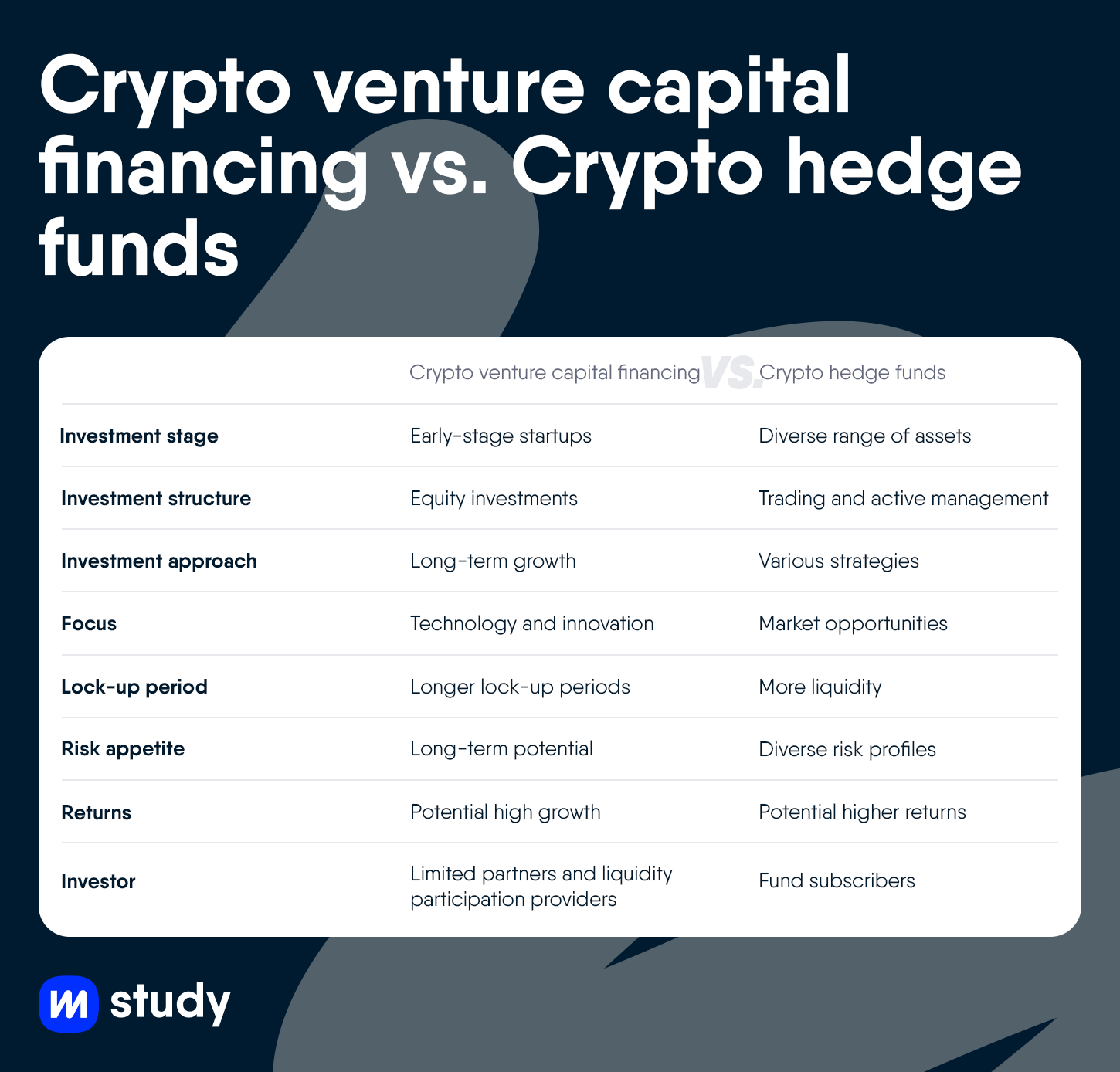Venture Capital (VC) financing is a pivotal financial mechanism, provided by institutional investors, to fuel the growth of startups and early-stage companies, typically at their expansion phase. Venture capitalists often invest in firms with unproven revenues and cash flows, assuming more substantial risks compared to traditional financing methods and usually acquiring an equity stake in return.
VC's primary purpose is to offer financial aid and strategic insights to high-potential startups, especially in sectors ripe for innovation like technology, clean energy, and biotechnology. VC financing is vital for these companies to achieve product development, market penetration, and operational scaling.
Venture Capital in the Cryptocurrency Realm
In the cryptocurrency domain, venture capital operates similarly, focusing on startups working with cryptocurrencies, blockchain technology, decentralized finance (DeFi), and other innovative applications of distributed ledger technology. Investments often materialize through the acquisition of tokens representing various value propositions, and venture capital firms frequently participate in token sales, often obtaining tokens at discounted prices.
In this space, venture capitalists meticulously evaluate projects, considering technical viability, market demand, competitive landscape, tokenomics, and legal constraints. They offer more than just funding, providing strategic counsel, industry connections, regulatory navigation, business development support, and help in community and token development.

Stages of Venture Capital Financing
Key Considerations for Crypto Venture Capitalists
VC financing progresses through various stages, each aligning with the startups' development and financial needs. The seed round is the initial financing phase, focused on product development and market validation. Series A financing follows, aiming at operational scaling and client growth, while Series B and subsequent rounds are targeted at accelerated growth and market expansion, with each round witnessing escalating investment amounts and expanding operational objectives.
Key Considerations for Crypto Venture Capitalists
In the dynamic cryptocurrency sector, venture capitalists must consider multiple aspects, including technological innovation, regulatory compliance, team proficiency, and market potential when exploring investment opportunities. Firms like Polychain Capital prioritize groundbreaking blockchain companies, while Andreessen Horowitz emphasizes regulatory compliance and engages in active legislative discussions around cryptocurrencies. The proficiency of the project team and the potential market impact are also critical determinants in the investment decision process.
Differentiating Crypto Venture Capital from Crypto Hedge Funds
Crypto hedge funds and crypto venture capital serve as distinct investment avenues in the crypto sector, with the former managing portfolios of cryptocurrencies and tokens and the latter focusing on equity investments in early-stage companies.

The Road Ahead for Crypto Venture Capital Financing
The recent regulatory confrontations involving major crypto exchanges by the United States Securities and Exchange Commission (SEC) underscore the need for adaptive strategies and enhanced diligence procedures by VC firms. A future marked by regulatory adaptations, the emphasis on compliance, and meticulous project assessments is conceivable, with VC firms likely to prioritize transparency, legal alignment, and credible partnerships in their investment choices.
Venture capital financing remains a cornerstone for innovation-driven startups, extending its influence to the cryptocurrency sector. By navigating through regulatory landscapes and emphasizing technological advancement, market potential, and operational competence, venture capital firms play a pivotal role in shaping the future trajectory of the crypto industry, potentially leading to a more compliant and transparent ecosystem.
